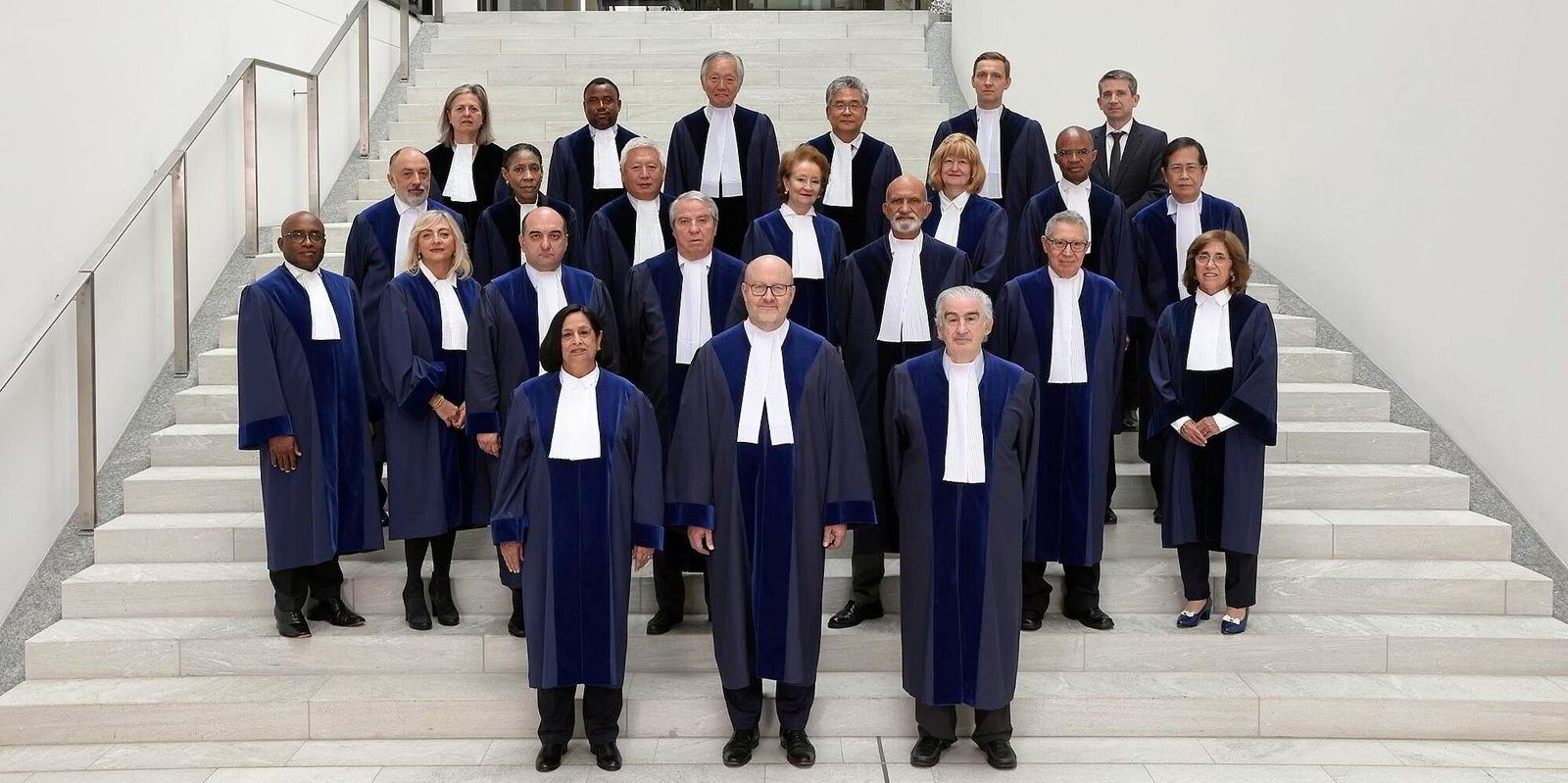Shipping could face greater risks that regional and national governments will develop more of their own decarbonisation rules after a decision by an international tribunal.
The International Tribunal of the Law of the Sea ruled that greenhouse gas emissions count as marine pollution under the United Nations Convention on the Law of the Sea (UNCLOS).
The tribunal, which interprets the treaty, had been asked by a group of developing countries to offer an interpretation of the convention to enable them to push for stronger action at the International Maritime Organization and other UN-related bodies.
Experts said its decision puts pressure on the IMO to ensure its revised greenhouse gas strategy meets the requirements of UNCLOS, as well as being in line with the targets of the Paris Agreement.
The Commission of Small Island States, which was formed by Tuvalu and Antigua & Barbuda, submitted the request to the tribunal in 2022 because the countries remained concerned about the snail-like progress being made internationally.
In what is seen as a key interpretation of UNCLOS by the tribunal, greenhouse gas emissions from land-based sources and transportation can be defined as marine pollution. This, the tribunal of 21 senior judges stated, means there needs to be action as laid out in the convention, which goes beyond the interpretation of the Paris Agreement.
Although the tribunal does not have any teeth in terms of policy setting and penalties for states not meeting their obligations, legal experts believe it will lead to stronger greenhouse gas policies and opportunities in the future for least developing countries and small island developing states to challenge or make claims against largest polluters.
Opportunity Green legal officer Isabela Keuschnigg, whose lobby group has been working on the case with the developing countries, said the outcome will make countries revise their emissions assumptions. That will boost international policy, as the text in UNCLOS calls for countries to take all necessary measures either “individually or jointly”.
“When the NDCs [nationally determined contributions] fall short of the 1.5-degree goal, they must do more under UNCLOS,” she said, referring to the Paris Agreement aim of keeping global warming at 1.5C above pre-industrial levels.
“International shipping is not covered under national NDCs, but these countries may not fulfil obligations under UNCLOS without it.”
This, she said, boosts the position of regional policies tacking shipping emissions, such as those of the European Union.
The tribunal judges also highlighted Article 217 of UNCLOS, which covers the responsibility of signatories to ensure pollution compliance, including greenhouse gases, by vessels on their national registries, putting more pressure on flags to take action.

The tribunal’s decision is not the only challenge to force more climate action by countries that are signatories to UN conventions.
Another challenge is currently with the International Court of Justice, and Keuschnigg believes this new interpretation of UNCLOS will boost the chances that it will decide in favour of stronger climate action.



